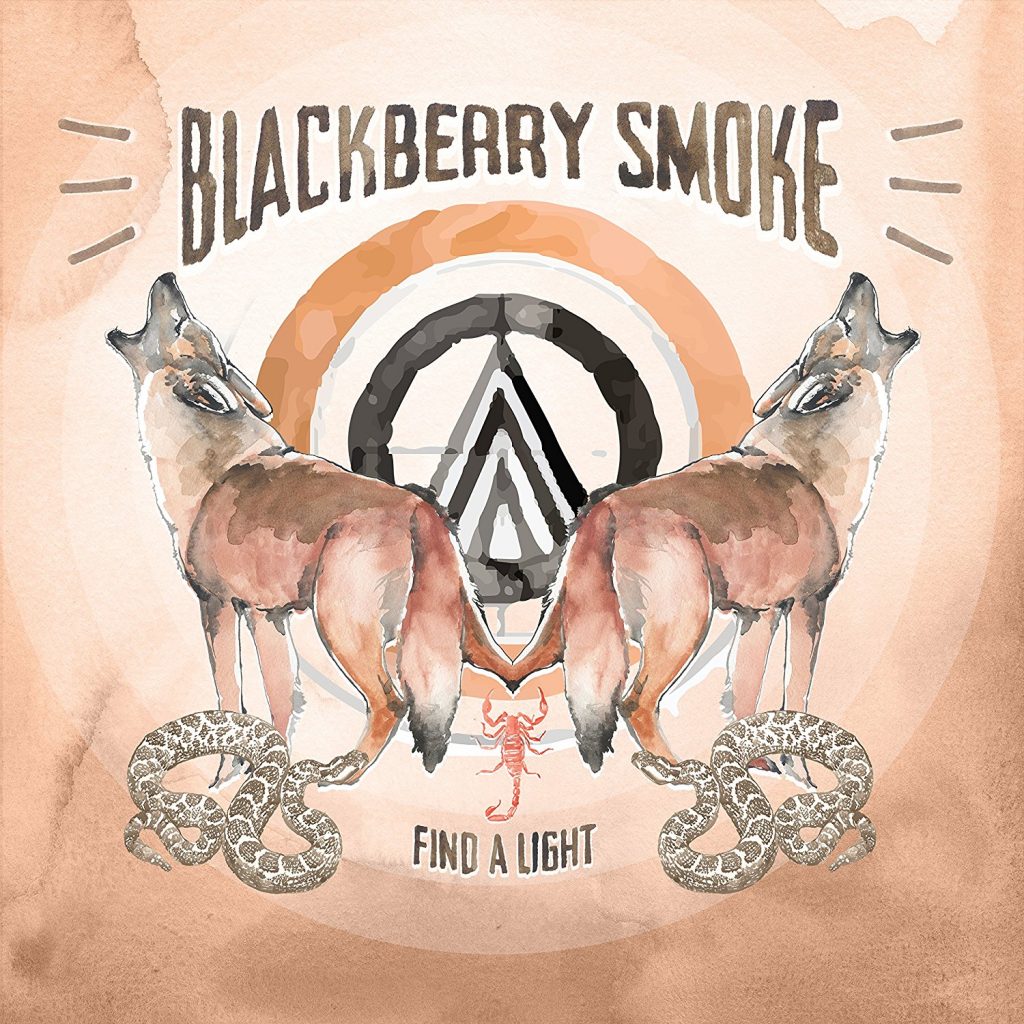SARAH SHOOK & THE DISARMERS, Years (CD/LP)
When Sarah Shook & The Disarmers self-released their debut album, Sidelong, in late 2015, it was the first statement from a powerful presence on the regional scene. Shook and her band struck a balance between fearless, fast-and-loose honky-tonk tunes and professional polish—equal amounts of grit and glory. Last year, the “insurgent country” champions Bloodshot Records wisely reissued Sidelong to a national audience, raising Shook’s profile along with it. The band’s second Bloodshot LP, Years, bears perhaps an even greater impact. Throughout Years, Shook displays a deadpan, no-bullshit vocal delivery that matches her unguarded, straight-from-the-gut songwriting. Dispensing with all affectation, she directs an arrow straight from the core of the songs to your ears. Not that Shook doesn’t know how to milk a moment for all its worth—for instance, when she lets out her final, despairing line, “I ain’t cut out for it,” at the end of the broken-hearted lament “Heartache in Hell,” her subtlest vocal modulations speak to a whole world of hurt. And when she elongates “years” on the title track to underscore how long it’s been since loving kindness came around, you can feel every day, week, and month of it right along with her. But even though tracks like “Heartache in Hell” and “The Bottle Never Lets Me Down” embrace the perennial country theme of submerging your sorrows in something upwards of 80 proof, despair is far from the only emotion in play here. The hardscrabble honky-tonker “Damned If I Do, Damned If I Don’t” serves as a reminder that sometimes tippling can be downright fun, even if you have to answer for it afterwards. Meanwhile, if you ever need to summon up some clear-eyed determination in the face of travails, you could do a lot worse than look to “What It Takes” and “Lesson” for your soundtrack. Matching their fearless leader’s moves step for step, The Disarmers keep things engagingly unadorned while knowing just went to whip out the perfect terse, twangy riff to punctuate Shook’s statements. The Bakersfield-worthy licks of guitarist Eric Peterson and pedal steel player Phil Sullivan framing the cathartic kiss-off song “New Ways to Fail” are a perfect example. And when Shook momentarily abandons her straight-talking style on that song for a mock-diplomatic “If I may speak with perfect candor,” you know it’s simply the setup for a knock-down, introducing a chorus that kicks off with “I need this shit like I need another hole in my head.” Shook comes equipped with the kind of backstory most Americana types would trade their beat-up ballcaps for—growing up, she was home-schooled by hyper-religious parents who outlawed most secular music in the house. At age twenty, she married her first boyfriend, had a child, and and got divorced—all of that has undoubtedly given her plenty to sing about. Shook also isn’t shy about letting it be known she’s also that most singular of anomalies, a queer country singer. In other words, when you listen to Years, you’re hearing the stories of somebody who’s been through her share of challenges. But it’s the kind of album that allows you to embrace the feeling of falling down followed closely by a dogged determination to get back up and soldier ahead.
BLACKBERRY SMOKE, Find A Light (CD/LP)
A new Blackberry Smoke album is always a cause for celebration. Rock doesn’t get more raucously joyous than the sizzling, smoking tunes the band delivers on their sixth full-length album, Find a Light. The songs ramble on through the vagaries of love (“Let Me Down”), life on the road (“I’ll Keep on Ramblin’”), and the power of music (“I’ve Got This Song”). Special guests Amanda Shires, Robert Randolph, and The Wood Brothers join lead singer and guitarist Charlie Starr, bassist Richard Turner, drummer Britt Turner, guitarist Paul Jackson, and keyboardist Brandon Still on this energetic album that never lets you sit still and has you singing along with every tune. The album kicks off with the rumbling, driving rocker “Flesh and Bone.” It’s as if early Black Sabbath met up with Steely Dan and then joined up with Lynryd Skynryd for a few measures. The blazing lead guitar riffs on the bridges in the song leave a brand on our hearts. “Run Away from It All” is a feel-good song; the song takes its phrasing from the Eagles’ “Long Run,” and has a vibe from REO Speedwagon’s “Without Expression (Don’t Be That Man”), but it has an easy groove that revels in the freedom of the open road. “Medicate My Mind” opens with a spunky little guitar riff and funks on into a wide-open, easy-going bridge that mirrors the lyrics that proclaim that “everything’s going to be all right/as long as I can medicate my mind.” The music itself offers medicine for the soul. “I’ve Got This Song” meditates on the power of music to get you through life, no matter what: “these days the good days are fewer and farther between/I don’t have much if you look through the eyes of the world/I’ve got this song/A story to tell/About the good times and bad times/Well, it might not be pretty or have much to say/But it all I’ve got left/At the end of the day/One thing they can’t take away/I’ve got this song.” Scampering guitars propel the hot-damn road song “I’ll Keep Ramblin’,” featuring Randolph, while Shires lends her harmonies to the love-you-but-have-to-let-you-go ballad “Let Me Down Easy.” “Till the Wheels Fall Off” kicks off with a lead phrase that recalls the early Fleetwood Mac’s bluesy jam “Oh Well” before it moves into a propulsive anthem to life on the road. There’s never a dull moment on Find a Light, and Blackberry Smoke has delivered another album that wends its way deep into our flesh and bone, blistering our souls and soothing our hearts.
DR. OCTAGON, Moosebumps: An Exploration Into Modern Day Horripilation (CD/2xLP)
When rapper Kool Keith and producer Dan the Automator recorded the original Dr. Octagon album in 1996, it felt like they invented a sub-genre of “weird rap.” Keith already had a (poppa) large reputation as a wizard of non-sensical rhymes dating back to this days with New York’s Ultramagnetic MCs. Dan was a well-respected, but low-profile, beatmaker in the Bay Area, whose debut 1989 single was a tongue-in-cheek, proto-horrorcore 12″ entitled “Music To Be Murdered By.” However eclectic on their own, both men were outliers in a hip-hop era that was still largely self-serious, eager to prove itself to mainstream detractors, whether via the cinematic street imagery of Nas, Biggie and Mobb Deep or the sonic sophistication of A Tribe Called Quest, Dr. Dre and the Wu-Tang’s RZA. The original Dr. Octagon album from 1996 (which was re-released a year later as Dr. Octagonecologyst) was a wholly unexpected success — it felt like an absurdist experiment, with Keith pursuing preposterous (and often prurient) prose over a mad scientist selection of Automator beats as likely to crib from Bartok and Pachelbel as it was Young Holt Unlimited and Rufus Thomas. The album launched prolific second acts for both artists, with Dan going onto a series of high-profile collaborations — with the likes of Prince Paul (Handsome Boy Modeling School), Del Tha Funkee Homosapien (Deltron 3030) and Damon Albarn (Gorillaz) — while Keith prolifically recorded under a slew of alter egos including Big Willie Smith, Mr. Nogatco and Tashan Dorsett. Over the years, Keith reused the Dr. Octagon moniker on several releases, but the new Moosebumps: An Exploration Into Modern Day Horripilation is the first Dr. Octagon project to reunite him with Dan since their original outing. By any measure, 22 years is a long time to wait between albums, yet Keith and Dan pick up right where they left off, weird and warped as ever. On first pass, you’re more likely to find bemusement than amusement in his relentless stream of consciousness, but with each repeated listen, his adroit turns of phrase and wordplay reveal themselves, like subliminal frames cut into film reel. Despite Keith’s larger-than-life presence, it wouldn’t be a proper Dr. Octagon release without Dan the Automator’s anchoring production. His palette leans dark on the new album, befitting some of the dystopian themes that creep into the songs. There’s growling synthesizers and dissonant whines (“Octagon Octagon”), robotic beeps and bloops (“3030 Meets the Doc”) and serrated strings and unruly guitars (“Operation Zero”). For all its moodiness though, one senses that Dan is having a ball emptying out a playpen of sound effects and samples. The best ten minutes, musically, might come in the middle of the album, beginning with “Bear Witness IV,” which marks the third time Dan has invited San Francisco’s DJ Q-Bert to let loose his virtuosic scratches. That’s immediately followed with the surprisingly upbeat “Area 54,” which combines piercing pianos, blaring horns and the album’s funkiest drum loop to produce the best early ’90s-era hip-hop basement jam of 2018. When the first Dr. Octagon album appeared in 1996, its utter difference from the rest of the rap landscape is what helped it become a cult classic. Over two decades later, pop music is so atomized that it’s hard to call anything “cult” when everything already feels like it’s been parceled into countless micro-niches. Yet Moosebumps is still so embracing of its inner weirdness, so uninterested in lyrical trends or production fads, that it still sounds refreshingly unique, despite there being no shortage of bizarro-rap out there. That speaks to the distinctive talents of both Kool Keith and Dan the Automator as their Dr. Octagon collaborations remain capstone achievements in a pair of careers spanning 30 years running.
ELVIS PRESLEY, Elvis Presley: Searcher (3xCD/2xLP)
The new multi-part documentary Elvis Presley: The Searcher, directed by Thom Zimny and airing on HBO on April 14, pushes past the larger-than-life image of The King of Rock and Roll, portraying him instead as a man and an artist “who wanted to heal, to find that thing that was always felt to be missing, and to do it through the music.” The 3CD deluxe edition box set offers an expanded 55-track overview of Elvis’ career as heard in the film including familiar hit recordings (“Heartbreak Hotel,” “Are You Lonesome Tonight?”), powerful vocal performances (“That’s All Right,” “Tomorrow Is a Long Time,” “Trouble/Guitar Man”) and rare outtakes (“Suspicious Minds,” “Separate Ways”), plus a bonus disc of additional recordings relevant to the film-including singles that inspired Presley (Arthur “Big Boy” Crudup’s original version of “That’s All Right,” Odetta’s gospel version of Bob Dylan’s “Tomorrow is a Long Time”) and two original instrumental pieces composed for the documentary by Pearl Jam guitarist Mike McCready.
JEFF BECK, Live At The Hollywood Bowl (2xCD/2xCD w/ Blu-ray)
THIRTY SECONDS TO MARS, New Album (CD)
UNKNOWN MORTAL ORCHESTRA, Sex & Food (CD/LP)
WYE OAK, The Louder I Call, The Faster It Runs (CD/LP)
SPECIAL VINYL RELEASE:
LORDE, Melodrama
The Deluxe edition will be a limited run and will include: 180 gram Translucent Royal Blue, Double Gatefold Jacket, Double sided record sleeve, & Bi-Fold Lyric booklet with 6 double sided photo inserts.
KILLER REISSUES
SON VOLT, The Search (CD/LP)
Led by the songwriting and vocals of Jay Farrar, Son Volt was one of the most instrumental and influential bands in launching the alt-country movement of the 1990’s. Originally released in 2007, and out of print for the past several years, this deluxe reissue of The Search features bonus content and the LP is pressed on opaque green vinyl. The Search takes Jay Farrar’s signature juxtapositions of the arcane and the modern to provocative extremes, contrasting the blue highways of a disappearing cultural landscape with a perilous world in which the center no longer holds – a world of information overload, of clueless leaders carrying out sinister agendas, of “Hurricanes in December – earthquakes in the heartland/Bad air index on a flashing warning sign,” as the artist sings ruefully on “The Picture.” The Search’s 14 songs locate and vividly portray the prevailing modes of the human condition in the first decade of the 21st century: cynicism (“Beacon Soul”), reflection (“The Search”), restlessness (“L Train,” “Highways and Cigarettes”), yearning (“Adrenaline and Heresy”), paranoia (“Automatic Society”), despair (“Methamphetamine”) and conditional hopefulness (“Underground Dream,” “Phosphate Skin”). By turns melancholy and exhilarating, the album further cements Farrar’s status as one of rock’s most eloquent chroniclers of contemporary existence.
COMING SOON:
NELS CLINE, Currents Constellations (4/13)
JOHN PRINE, Tree Of Forgiveness (4/13)
JOSH ROUSE, Love In The Modern Age (4/13)
DEREK SMALLS, Smalls Change (Meditations On Ageing) (4/13)
And don’t forget these STILL-NEW platters that matter!
BETTYE LAVETTE, Things Have Changed (CD)
Take one of the world’s foremost soul interpreters, turn her loose on the songbook from roots music’s most respected singer-songwriter, bring in a veteran and sympathetic boardman who entices some of his celebrated musician friends to guest, and hang on — as this perfect storm yields a riveting meeting of the minds. But Bettye LaVette doesn’t just saunter through Bob Dylan’s better known material; rather, she and drummer/producer Steve Jordan dig deep into Zimmerman’s catalog to excavate and reinterpret seldom anthologized gems spanning 1964 through 2006. And when she does tackle established Dylan fare like “It Ain’t Me Babe” or “The Times They Are A-Changin’,” she and Jordan take risks by rearranging them in ways so musically unlike their initial recordings, even long-time Dylan fans won’t recognize the songs until the lyrics kick in. The idea of covering his tunes almost borders on cliché at this late stage, yet LaVette and Jordan twist the model in so many unusual and interesting directions, the results sound fresh and inspired. The relatively stripped-down backing includes such A-team names as bassist Pino Palladino (The Who), Leon Pendarvis (Luther Vandross) on keyboards, and guitarist Larry Campbell (Levon Helm), all established journeymen. Add Jordan buddy Keith Richards to lay his licks over a few selections, including a bluesy “Political World” injected with Neville Brothers funk, along with Trombone Shorty who, with fellow New Orleans-resident Ivan Neville, brings the seldom covered “What Was it You Wanted” (from 1989’s Oh Mercy) into Marvin Gaye’s What’s Going On territory with a stunning, revelatory performance. Only dedicated Dylan followers will recognize obscurities like “Emotionally Yours” and “Seeing the Real You at Last” (both tucked away on 1985’s Empire Burlesque), “Ain’t Talkin’” (that closed out 2006’s Modern Times), the lovely ballad “Mama, You Been on My Mind” and the terrific title track, which first saw the light on the soundtrack to Wonder Boys. Everyone else will marvel at LaVette not only uncovering these often hidden jewels, but diving into them with her powerful, clearly enunciated and distinctive soulful rasp. She grabs onto “Do Right to Me Baby (Do Unto Others)” from Dylan’s somewhat maligned Slow Train Coming, wrestling it into a stunning muscular rocker far different and more intense than the original’s subtle jazz/blues. Gregg Allman tackled “Going Going Gone” on his final album from 2016 and LaVette now revisits it to close out this set in mesmerizing, ruminative form. These dozen performances will make listeners reassess songs some already know. But more likely they’ll be stunned at how LaVette revitalizes and shape shifts them into her own soulful reflection. Dylan’s compositions have effectively been converted into Bettye LaVette songs, a transformation you can’t help but believe even Bob will appreciate.
FRANKIE COSMOS, Vessel (CD/LP)
One would be hard pressed to find a contemporary rock group that utilizes short song structures as effectively as Frankie Cosmos. The fact that Greta Kline is able to conjure such vivid images in under two minutes shouldn’t be understated. With Vessel, Kline balances the tightrope of lyrics and music with the confidence of an artist who knows their strengths. The ability to match form and aesthetic is pivotal to any artist’s vision. This ability is evident on the song “As Often as I Can.” On the song, Kline sings, “I love you so / I’ll let you know / As often as I can.” Though the lyrics promise commitment, Kline doesn’t actually say ‘I love you’ that much during the 1:04 — barely two times altogether. The inability to express authentic affection is a central theme to many of the new songs. Here’s a (cool?) activity to try: instead of listening to Frankie Cosmos’ Vessel, read it! Yes, reading isn’t as fun as the infectious indie pop music vibrating behind the new album, but even without instrumentals Greta Kline’s lyrics read like impressionistic poetry. The words capture a mood or thought eloquently, then vanish. They’re worth your time. Still, you should probably listen to it too. Subtle verbal deliveries revitalize the anxiety present in many of the songs. Greta Kline delivers her phrases with what is best described as melancholic effervescence. The way she pronounces “caramelize” (care-ah-melize), the nervous giggle following the false start in “Ur Up” and the energetic countoff for “Being Alive” all have a strange way of diffusing depression. In the end, Vessel is about love. It’s about the love we feel for friends and partners and ourselves. Love is simultaneously a source of comfort and great anxiety. Kline grapples with this contradiction on the album, but she emerges better for the experience. Vessel is Kline’s most emotionally intelligent album to date.
BEN HARPER & CHARLIE MUSSELWHITE, No Mercy In This Land (CD)
With a Grammy for best blues album in their pocket for 2014’s “Get Up!” Ben Harper and Charlie Musselwhite put themselves in contention again with “No Mercy in This Land.” The credit sheet gives the impression of a lopsided May-September collaboration. Harper wrote or co-wrote the 10 tracks, sings and plays guitar (slide, acoustic, electric) on all of them and co-produced the record. All Musselwhite does is play the harmonica and intone some emotional verses on the title track. Just like all Shakespeare did was write plays and poems. The album veers between electric and acoustic sounds, from songs about the challenges and thrills of love to a couple of tunes about alcoholism and others about seemingly insurmountable hardships. There are sharp observations and knowledge of the world in Harper’s songs — “Everybody says I love you/But not everybody lives I love you” and “You may have learned to hustle/But you never learned to dance” — and they’re a great fit with the duo’s magnetic blues repertoire, blended with gospel, soul and rhythm & blues. “The Bottle Wins Again” rages, “Bad Habits” shakes, “Moving On” struts and “Found the One” sounds ripe for a cover by Harper’s other veteran collaborators, the Blind Boys of Alabama. Musselwhite’s tones range from Little Walter-like overdriven vamps to a caressing contribution reminiscent of Larry Adler on the excellent album-ending ballad “Nothing at All.” Lead guitarist Jason Mozersky, whose solos blend beautifully with Musselwhite’s, bassist Jesse Ingalls and drummer Jimmy Paxson form a tight, flexible unit. There’s no audible generation gap on “No Mercy in This Land,” just a pair of kindred souls who know how to make great music.











